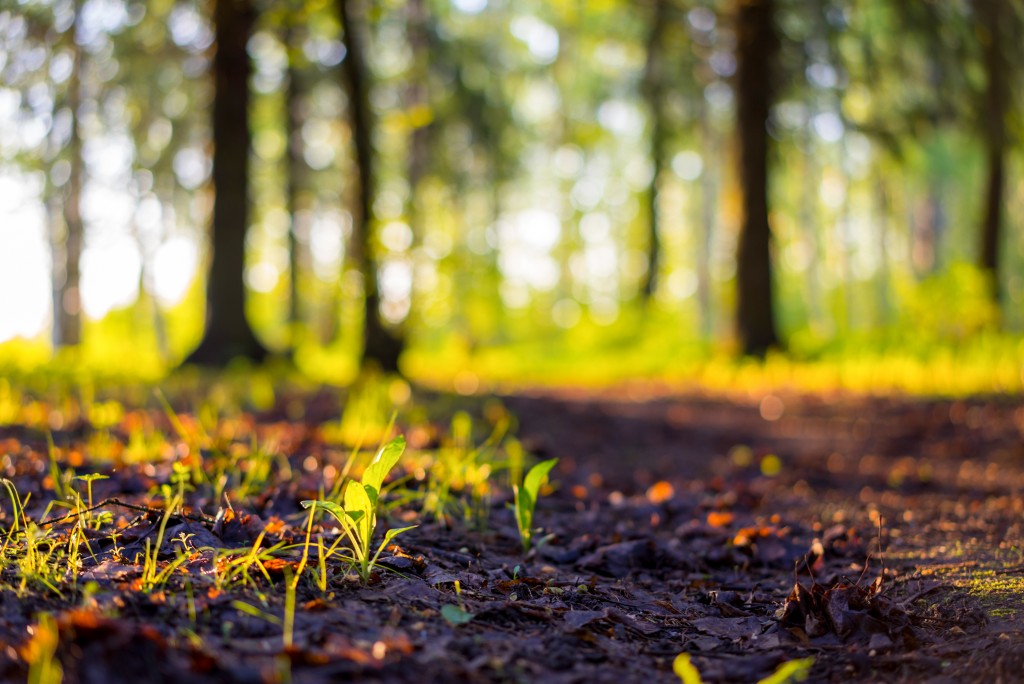No matter where in the world you live, the pandemic has dominated the news. For months now, we have been learning how to help manage public health and safety on the fly. We’ve found ways to adapt, such as wearing face masks, observing physical distancing in public, and working remotely as much as possible.
And yet we’re facing the possibility that COVID-19 will be around for the long term. After the initial response had seemed effective at containing the outbreak, many countries are now experiencing a second wave of infections. Many epidemiologists have warned that the coronavirus could eventually become endemic.
With the approach of winter, the transmission of colds and other respiratory diseases generally increases, putting many of us at higher risk of infection. Here’s why it’s time to break out those running shoes, or plant supplies, and start making it a habit to connect with nature.
Nature helps boost well-being
The pandemic has had dire and adverse impacts on millions of people. Jobs and lives have been lost. But even as the rest of the population tries to stay safe, we could all be suffering from many small but persistent adverse effects.
Being socially isolated and full of anxiety at the state of events across the country can put a strain on our mental health. Restrictions imposed on our activities, as well as the shift favoring remote work, can nudge us even further towards a sedentary lifestyle.
There are many things we can do to counteract these minor effects. But spending more time with nature is among the most effective options at our disposal. Studies have shown that as little as 10 minutes of leisure time amid a natural environment can reduce stress and boost mental health and well-being.
Reconnecting with nature helps to regulate our sleep cycles by exposure to natural light. It helps you to rest and recharge more effectively. It also improves the immune system and lowers blood pressure. And by going out, you’ll already inject more variety into your routine of physical activity.
Instead of spending hours sitting in front of a screen, you can take a break, stretch those muscles, and start moving about. Leave your devices at home, and you can enjoy a daily tech detox as well.
Vitamin D makes you resilient

These benefits of nature have been well-documented over the years. Yet recent research also suggests that nature can play a direct role in resisting the effects of Covid-19.
You’ve probably heard that certain age groups are at a higher risk of both infection and mortality. Children seem unusually resistant to the pandemic, while elderly people are more susceptible. Socio-economic factors can also play a part; if your job can’t be performed remotely, you risk greater exposure.
However, independent of these factors, researchers have found that vitamin D deficiency is significantly correlated with negative outcomes in Covid-19 patients. And as the cold months draw near, inhabitants of northern countries are particularly vulnerable.
During the winter, the northern latitudes receive less intense sunlight. Skin synthesis from sunlight is our primary source of vitamin D, accounting for nearly 80% of healthy adults. Throw in the possibility of lockdown measures, and our occasional forays outside of the home might not suffice to offset the deficit in vitamin D production once winter sets in.
How you can reconnect with nature
Thus, spending more time with nature doesn’t just boost your physical and mental health; it will help you maintain normal levels of vitamin D, making you resilient to disease. And with the impending flu season, being resistant is just as important as limiting exposure.
Depending on where you live, getting a good dose of nature each day can be easy. Maybe you’re just a short drive away from a good hiking trail. You might have a garden or some trees on your property. Even in the concrete jungle of our big cities, there are usually some accessible public green spaces, such as gardens and parks. A greenhouse could be a great home improvement project, especially if you live in a climate that experiences harsh winters or are expecting some nasty cold this year.
You’ll have to observe safe practices when going out. Other people might be about, looking to enjoy their time with nature as well. The natural environment improves your health; it doesn’t prevent transmission of disease. Make sure you wear a face mask when you’re not alone, and bring some hand wipes and disinfectant.
This has been a challenging year for everyone, and the coming winter can prove even more challenging. But if you find ways to integrate nature into your daily routine, you can fend off the expected adverse effects.




